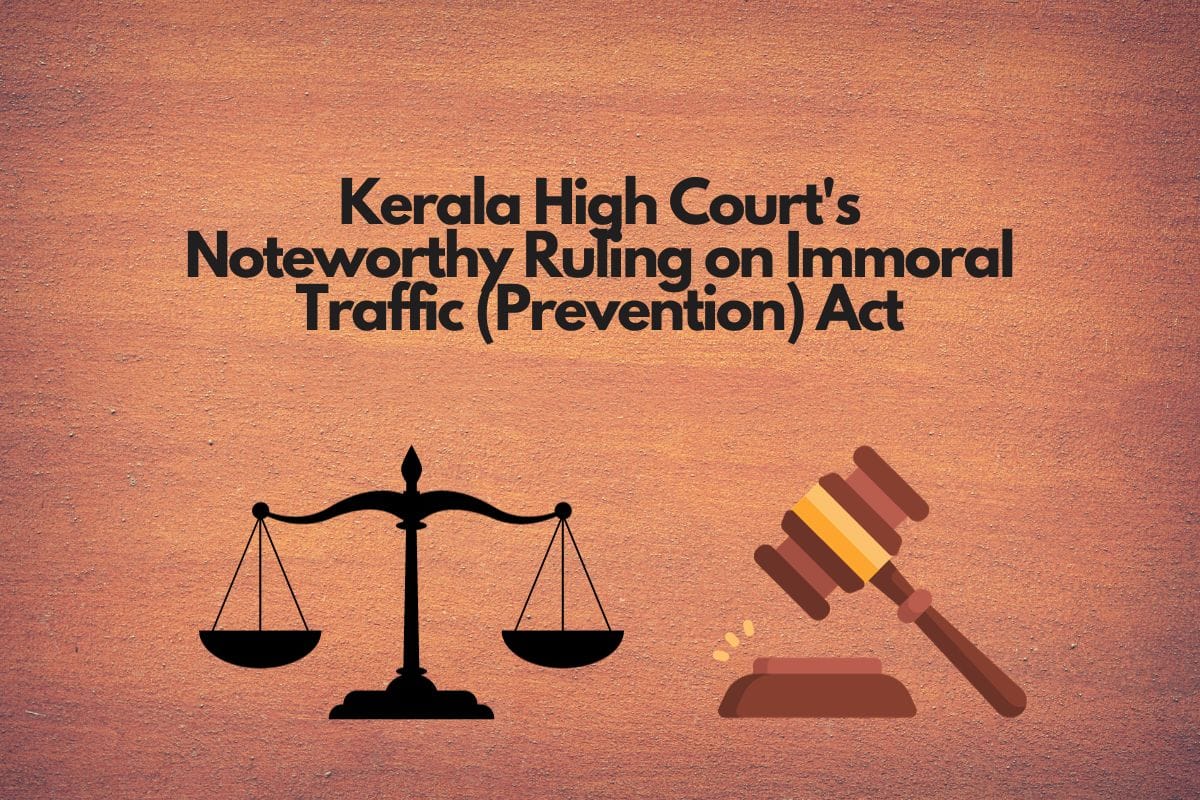
In current affairs today, the Kerala High Court has broadened the scope of the term ‘procure’ in Section 5 of the Immoral Traffic (Prevention) Act, 1956. This extension now encompasses customers seeking the services of prostitutes.
Understanding the Immoral Traffic (Prevention) Act, 1956
The Immoral Traffic (Prevention) Act (ITP), 1956, aims to curb vices’ commercialization and prevent the trafficking of females. While it doesn’t declare sex work illegal, it prohibits running brothels. Engaging in prostitution is recognized, but soliciting and luring individuals into sexual activities are deemed illegal.
Key Definitions
- Brothel: Any place used for sexual exploitation or abuse for gain.
- Prostitution: Sexual exploitation or abuse of persons for commercial purposes.
Offenses
Section 5 penalizes those procuring individuals for prostitution, carrying a sentence of 3–7 years of rigorous imprisonment and a fine of Rs 2,000. For offenses against a person’s will or a child, the maximum sentence can extend to fourteen years or life.
Kerala High Court’s Verdict
The Case:
In a recent case, a petitioner faced charges under various sections of the ITP Act for being a customer in a brothel. Seeking discharge, the accused argued against implication under Section 5.
The Ruling:
The Kerala High Court, acknowledging the term “procure” is not explicitly defined, interpreted it in the context of the Act’s objective. The court ruled that ‘procure’ includes customers, allowing charges under Section 5.
Implications of the Ruling
The Kerala High Court’s decision expands the meaning of “procure” in Section 5, asserting that customers can be held liable for procuring persons for prostitution. Notably, this doesn’t declare guilt but allows charges, necessitating a trial. The petitioner was discharged of offenses under other sections.
Differing High Court Opinions
Kerala High Court (2022):
Customers caught in a brothel can be prosecuted under the ITP Act.
Andhra Pradesh and Karnataka High Courts (2014, 2017):
Ruled against prosecuting brothel customers under sections 3-7 of the ITP Act.
Legal Status of Sex Work in India
Recognition as a Profession:
The Supreme Court recognizes sex work as a “profession,” entitled to equal protection of the law. Voluntary sex is not a crime.
Fundamental and Human Rights:
Various court cases emphasize the fundamental and human rights of sex workers, including their right to dignity, protection, and rehabilitation.
Government Initiatives Addressing Sex Work
Ujjawala Scheme:
The Ministry of Women and Child Development implements the Ujjawala scheme, focusing on preventing trafficking and rehabilitating victims.
National Commission for Women and NHRC:
Institutions like the National Commission for Women and NHRC work towards protecting the rights of women and informal workers, including sex workers.
Awareness Campaigns:
Government-led awareness campaigns aim to educate the public about the risks associated with commercial sex trade.
Societal Perceptions on Sex Work
Cultural Stigma:
Despite being legal in certain contexts, sex work is often viewed as unethical and against cultural values. Stigma leads to social isolation for sex workers.
Gender Dynamics:
Prostitution is seen by some as degrading and exploitative, particularly towards women. Sex workers face discrimination and violence.
Advocacy for Autonomy:
Advocates argue for women’s agency in deciding their bodies and see sex work as a profession where freedom of choice is exercised.
Moving Forward
The debate around the ethical implications of prostitution in India continues. Regardless of individual perspectives, upholding trafficking laws is crucial to prevent exploitation. Open dialogue, education, and legal recognition of equality for all citizens, irrespective of their chosen profession, remain key aspects for consideration.



Leave a Reply